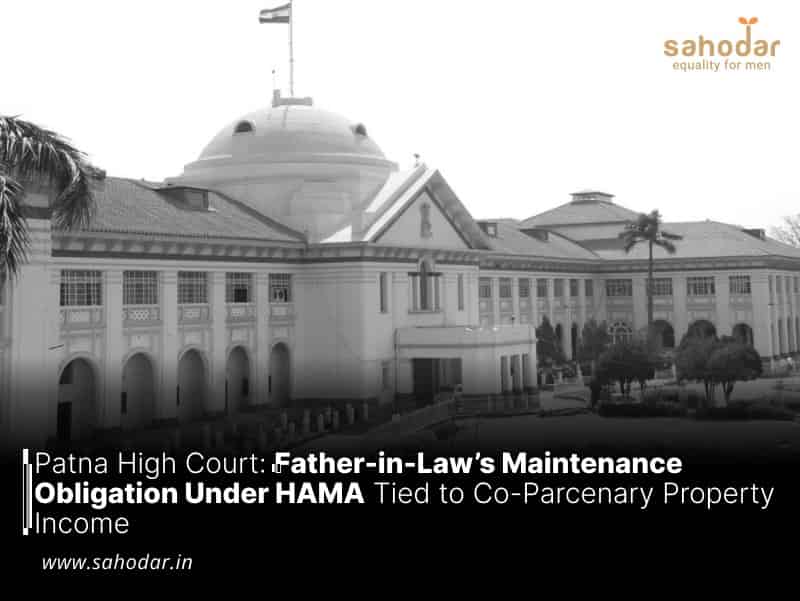It was argued that the father-in-law’s liability was dependent on his possession of coparcenary property.
The Patna High Court held that under the Hindu Adoptions and Maintenance Act (HAMA), a father-in-law is not inherently liable to provide maintenance to his widowed daughter-in-law unless he derives sufficient income from coparcenary property.
The case arose from a Criminal Revision petition in which the complainant sought financial support from her deceased husband’s family. Initially, a magistrate ordered maintenance to be provided by her husband, in-laws, and other relatives. However, the Sessions Court later modified this order, directing her father-in-law and mother-in-law to pay her Rs. 5,000 per month as maintenance.
Challenging this decision in the High Court, the petitioners—including the father-in-law and other relatives—argued that the Sessions Court had wrongly imposed maintenance obligations on both parents-in-law. They contended that the father-in-law’s liability was contingent upon his possession of coparcenary property and that, as a pensioner with limited financial means, he was unable to bear the maintenance burden.
A Bench of Justice Jitendra Kumar said, “Section 19 clearly shows that liability of father-in-law to maintain his daughter-in-law is dependent upon income from the coparcenary property, if any. But learned Counsel for the petitioners submits that there is no such coparcenary property. There is only one residential house for the joint family where the complainant is free to live. He also submits that the father-in-law is just a pensioner and has no additional means to maintain her daughter-in-law. Moreover, mother-in-law has no liability to maintain her daughter-in-law. Hence, the impugned order is not sustainable in the eye of law.”
The Court observed that a father-in-law’s obligation to maintain his widowed daughter-in-law depends on his income from coparcenary property. It emphasized that since the petitioner’s father-in-law was a pensioner with no additional source of income, he could not be required to provide maintenance.
The High Court sided with the petitioners, ruling that, “I find that learned A.C.J.M, without discussing the law and the facts, has passed the maintenance order against all the respondents including the husband, both parents-in-law and other relatives. Such order could not be sustainable in the eye of law. Only husband could have been directed to pay maintenance, at the most, subject to fulfillment of legal requirements.”
The Court clarified that only the husband, and in specific cases, the father-in-law, could be liable for maintenance under Section 19 of the HAMA. The Court added, “Even liability of the father-in-law is not absolute. Certain conditions as stipulated under Section 19 of the Hindu Adoption and Maintenance Act, are required to be fulfilled before fastening such liability on the father-in-law. But, learned Sessions Court has not discussed such relevant law and facts before passing the impugned order.”
Consequently, the High Court overturned the maintenance order and remanded the case to the ACJM for a fresh evaluation of the widow’s entitlement to maintenance based on the presented evidence. However, the Court upheld the protection and residence orders in the complainant’s favor, permitting her to continue living in the joint family home.

